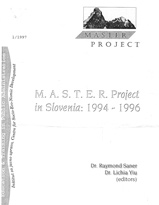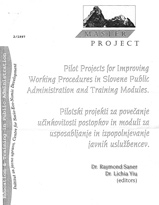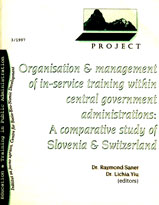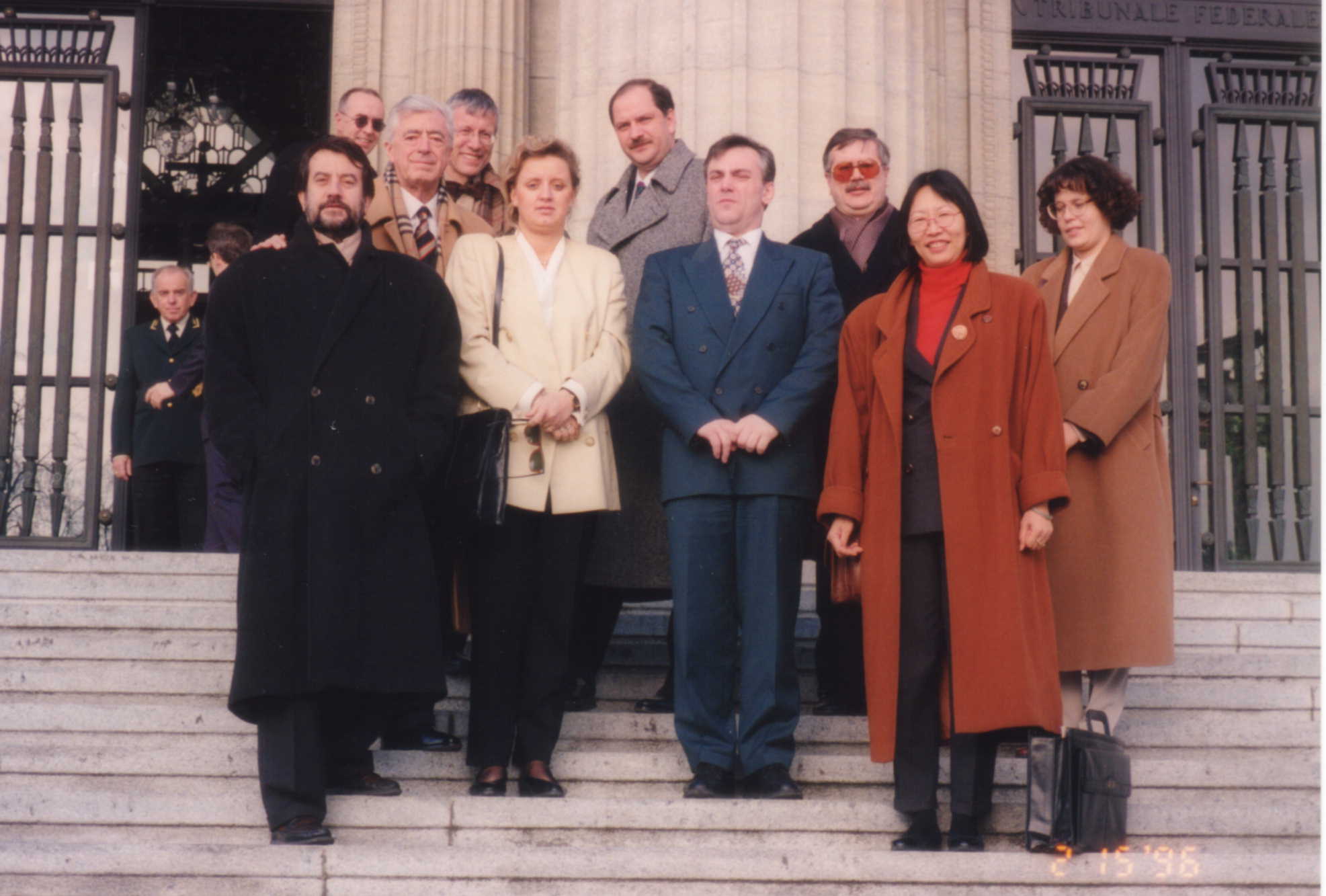


![]() Click here to see Excerpts
Click here to see Excerpts![]() Click here to see Excerpts
Click here to see Excerpts![]() ProjSamples-slovenia1997
ProjSamples-slovenia1997
Action Learning and Action Research Based Administrative Reform
Slovenia, formerly part of the Republic of Yugoslavia, began gradually building and strengthening its public administration after becoming independent in 1991. The Swiss-Slovenian bilateral project specifically focused on improving government performance in three core areas: central administration, public services, and training and development of civil servants.
An "action technology" based organisation development (OD) strategy was adopted for this project. Emphases were given to the speed of change and the institutional learning. By adopting an action based learning and change strategy, this Slovene-Swiss project was able to conduct know-how transfer activities and pilot reform projects in tandem over fifteen months period.
Specifically, this project consisted three major components, namely:
- creation of new competencies within its central government administration. Two new units were to be set up: the first, to provide consultancy in the area of organisational efficiency improvement, the second, to upgrade the skill level of Slovenia's senior civil servants.
- Training of qualified candidates for staffing these two new units. Individual trainees were responsible to develop a five-year training plan for central government officials and to pilot an action research methodology for governmental reform.
- Implementation of pilot projects in strengthening efficiency and effectiveness of specific governmental offices, Ministry and state enterprises.

Institution Development Programme
In 1995, 40 Slovenian civil servants from various government departments took part in an 18-month "M.A.S.T.E.R.™" (Managing Administrative Systems through Training, Education and Research) programme to learn modern management and administration methods. An "Action Learning" approach was used in both classroom and workplace settings.
Basic Programme.
The basic curriculum included the following main subjects:
- comparative administrative systems,
- theory and methods of organisational development,
- financial management,
- policy evaluation,
- human resource management and development,
- personal effectiveness (presentation techniques
- public speaking and time management),
- working skills (decision-making, planning),
- Slovenian administrative systems,
- Slovenian law and legislation,
- PC literacy (Word for Windows, Excel, graphics) and statistical analysis.
Study Visit to Switzerland.
In the following programme phase, the Slovenian trainers traveled to Switzerland for first hand exposure to different management practices and administrative culture. Trainees were given opportunities to established dialogues with different public actors in managing the country and its economy.
Focus of learning during this phase was to achieve a comparative perspective regarding institutional reform/transformation, management development, and human resource development in the public and private institutions.
Institutionalisation
Project Results
A report published by CSEND on the process of implementing "Action Learning" in the Slovenian central government is available for use as reference. The following results were produced by the project participants:
- Improved procedures for selecting and financing scientific research projects (Ministry of Science and Technology)
- More efficient process for licensing new businesses (Municipality of Ljubljana)
- Streamlined process of issuing residence permits (Ministry of Internal Affairs)
- Better preparation of government sessions (Chancellery)
- Streamlined procedures for obtaining telephone service (Slovene Telekom)
- Improved process for adopting international standards (Standardisation and Metrology Institute of Slovenia)
- Training needs analysis conducted for the total government (Slovene central government)
- Core curriculum developed for the new Academy (Slovene central government).
An important result of this institution development project was the opening, in 1997, of the new National Administrative Academy for civil servants, the first of its kind in Slovenia. Equipped with computer labs, conference rooms and classrooms, the Academy, located in Ljubljana, offers management development programmes and seminars stressing a customer-oriented approach and more efficient delivery of services to Slovenian citizens. By becoming effective change managers and leaders, future Academy trainees are expected to play a pivotal role in Slovenia's administrative reform.
In 1998, the O&M unit was established under the authority of the State Secretary for Public Administration who was responsible for the public administrative reform in Slovenia. This O&M unit was to coordinate and to provide consulting support for the reform process.
Publications:
Yiu, L., Saner, R. (Editors).; "Organisation & Management of In-Service Training within Central Government Administrations: A Comparative Study of Slovenia & Switzerland". Institute of Public Administration. Ljubljana. 1997.
Yiu, L., Saner, R. (Editors).; "Compendium of Pilot Projects for Improving Working Procedures in the Slovene Public Administration and Training Modules". Institute of Public Administration. Ljubljana. 1997.
Yiu, L., Saner, R. (Editors).; "M.A.S.T.E.R. Project in Slovenia: 19945-1996". Institute of Public Administration. Ljubljana. 1997.
Saner, R., Yiu, L.; "The Need to Mobilise Government Learning in the Republic of Slovenia". The International Journal of Public Sector Management, Vol.9, Issue 5. 1996.
Conferences:
Building Capacity for Public Administrative Reform: Experiences from Slovenia (1991-2006)
A four hour panel to review the journey of public administrative reform in Slovenia since its independence in 1991. Fifteen years passed, what improvements have been sustained and what challenges remain within the public administration of Slovenia? What elements of the transformation process could be replicated when thinking of capacity building in other Southern countries of former Yugoslavia? Details of this review session can be see here.